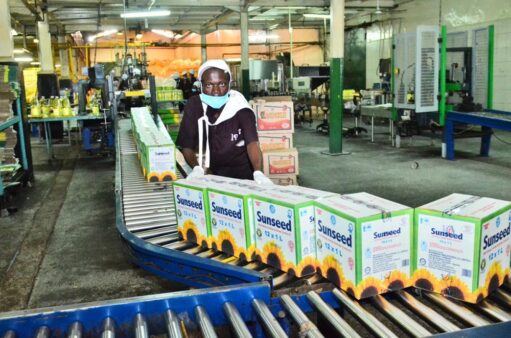Yes, the outcry by the beverages and manufactures is a legitimate concern.
The association welcomes the government’s move to combat illicit trade, tax evasion as well as protect consumers from contingent products through the introduction of Digital Tax Stamps (DTS). However, this new DTS administrative measure must be implemented in such a way as not to harm the competitiveness and cost of doing business of the alcoholic beverages sector in Uganda. This can only be achieved if the cost of the DTS is not passed on to the manufacturers.
If the DTS costs are passed on to the manufacturers of alcoholic and non-alcoholic beverages, this will increase the cost of production of these products, which will increase the selling price of the products. The members of the Alcohol Association have noted that whenever there is an increase in the price of alcoholic beverages as a result of the introduction of a new tax, consumers stop buying the formal alcoholic beverages and switch to the informal illicit local brews. This results in a drop in the sales volumes of the formal alcoholic beverages which in return results in a loss of tax revenue to the Government.
Since the objective of the introduction of DTS is to combat illicit trade, tax evasion, and protect consumers from counterfeit goods, its implementation should be aimed at achieving these objectives. The government should, therefore, continue bearing the cost of the DTS so that it is not implemented and enforced as if it’s a new tax on alcoholic beverages.
By way of example, the URA, in their Revenue Performance Report for FY18/19 highlighted a decline in beer sales of 7.8% as being one of the contributors for a decline in the VAT collections for the financial year. The URA attributed the decline in volumes to an increase in price for the affordable beer brands like Senator, Ngule and Eagle beer. The position reported by the URA in the FY18/19 revenue performance report is likely to be worsened if the DTS costs are passed on to the manufacturers since the DTS costs will increase beverage costs across the board including spirits and other premium beer brands.
The members of the Alcohol Association have projected a decline of up to 32% for excise duty and up to 34% decline for VAT collections from beer alone by 2022 due to the anticipated effect of the DTS costs that are expected to be passed on to the final consumers.
How best can the government delicately balance the need to collect revenue without killing the golden goose that lays the egg?
Based on the negative impact that the passing on of DTS costs will have on the prices of the various alcoholic beverages, there’s a need for the Government to continue bearing these costs. The Covid-19 containment measures have reduced members of the Association’ production capacity by over 30% and their sales revenues by between 30% and 65% depending on the different business’ distribution capabilities. If the DTS costs are passed onto the manufacturers, the final price for the various beverages will increase which will derail the Government’s effort in stabilizing most sectors that are experiencing reduced demand for their products during this Covid-19 period.

To cushion the industry and the Government from the projected negative DTS costs, the government should introduce a mechanism allowing for recovery of the DTS costs incurred by the members once they confirm to the URA’s satisfaction that they have paid in full all the excise duty due and payable on the respective excisable goods. This recovery of the DTS cost may be through offsetting the DTS costs incurred against excise duty payable within the monthly excise duty returns.
In your perspective and experience, are you satisfied with the government approach in protecting the local industry in the period running up to and after Covid-19?
The Government has put in place various economic stimulus packages as part of supporting local industries such as;
- Ensuring financial sector stability: The Bank of Uganda has implemented a range of measures designed to facilitate affected businesses, maintain stability and stimulate the economy such as permitting financial institutions to restructure customer loans, provision of liquidity through longer-term reverse repos as well as easing the Central Bank Rate (on 8 June reduced to 7%);
- Fast-tracking of VAT refunds: The Government has allocated an additional UGX 120 billion for this purpose;
- Deferment of tax payments up to 30 September 2020 for tax liabilities falling due in the period from 1 April to 30 June 202o for businesses involved in tourism, manufacturing, horticulture or floriculture with an annual turnover of less than UGX 500 million;
- Waiver of interest for tax arrears that are unpaid by 30 June 2020, for taxpayers who voluntarily comply with their tax obligations.
However, given the gross negative impact that the Covid-19 pandemic has had on various businesses, the government should consider the additional local industry protection measures such as;
- Expanding the sectors that are eligible to benefit from the tax payment deferment incentive. Currently, this is only available to businesses with a turnover of up to UGX 500 million in the manufacturing, horticulture, tourism, and floriculture yet many other sectors have been greatly negatively impacted by the Covid-19 pandemic.
- Extending the tax deferment period to 31 December 2020 for the sectors that continue to be affected by Covid-19. Government containment measures continue to affect various sectors such as the alcoholic beverages and entertainment sector following the continued ban on social events, closure of bars, and night clubs.


 Winning in the Marketplace and with Stakeholders: A strong first year for Airtel Uganda’s Soumendra Sahu
Winning in the Marketplace and with Stakeholders: A strong first year for Airtel Uganda’s Soumendra Sahu


